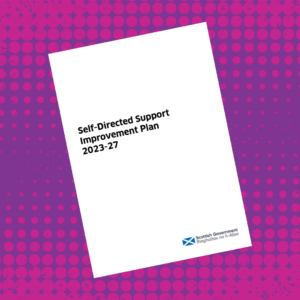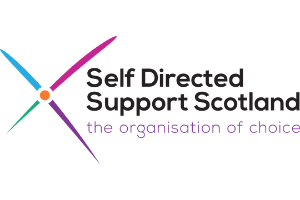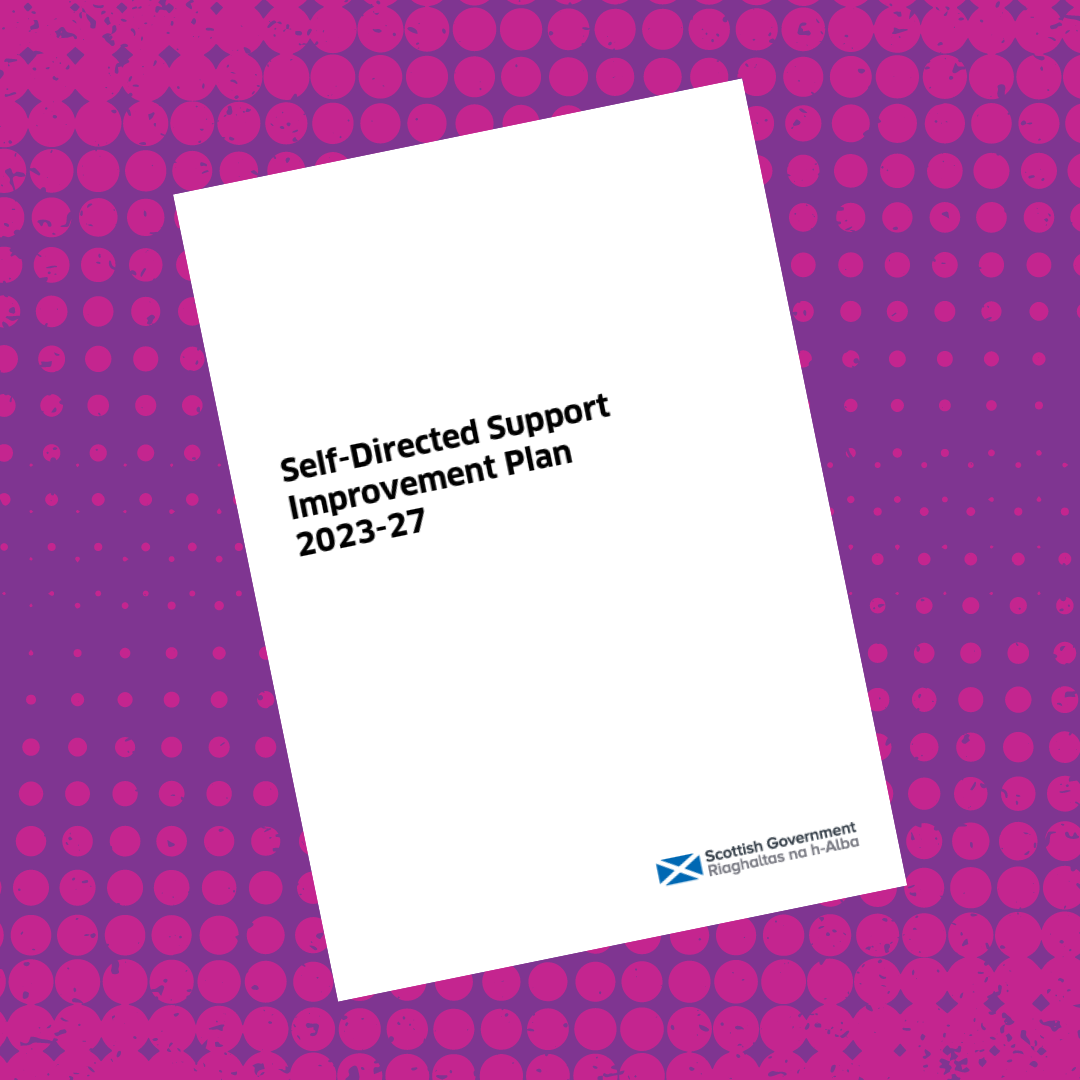SDS Improvement Plan 2023 – 2027 published

The Scottish Government and COSLA have published a new plan to drive forward improvement in Self-directed Support over the next few years.
The SDS Improvement Plan 2023 – 2027 sets priorities for work that will take place right across the sector – from Government and local councils to third sector organisations, independent support organisations and others.
Since the law around Self-directed Support came into force in 2014, there have been several strategies and plans put in place to move social care delivery towards the new model and embed the principles and values of SDS in practice. This latest plan is the successor to the SDS Implementation Plan 2019 – 2021 and describes a number of actions that will take place over the coming years.
The Plan is supported by around £7.5 million in Scottish Government funding in its first year, distributed to organisations with a role in delivering the plan, and to local authorities through transformation funding.
Minister for Social Care, Mental Wellbeing and Sport, Maree Todd, said:
“The SDS Improvement Plan will help us to put choices on care into the hands of the people receiving support, enabling them to live independent lives and meet their specific needs. The importance of person led care has been highlighted regularly throughout the development of the Plan and it is right that this brings the focus back to supported people.”
“That is why I’m pleased that this Plan has included engagement and consultation with supported people and carers, as well as support organisations, employees and professional bodies. I would like to thank all those, including the National SDS Collaboration, who enthusiastically engaged in the Plan’s development and shared their experiences and voices.”
COSLA Health and Social Care Spokesperson, Councillor Paul Kelly, said:
“We are happy to share the publication of the Self-directed Support (SDS) Improvement Plan 2023-2027. This plan aims to take a whole system approach to the improvement of SDS, recognising that delivery partners across statutory, third and independent sectors all play an essential role in SDS improvement. Significant progress has been made towards embedding the principles and values of SDS within social care and social work resulting in more personalised care that puts choice and control at the centre. However, there is also still more to be done and this plan sets out the strategic direction to support this.”
Four areas of focus
The plan recognises that SDS should be the way that social care support is delivered for adults, children and young people, families and carers.
It targets four main areas for improvement:
- Supported person and carer’s choice over their support, where success means access to information, advice and advocacy, access to quality support, and control and involvement for supported people over how it is delivered
- enhanced worker skills, practice and autonomy, where success means workers across all aspects of social care support are better able to practice in line with SDS values and with statutory duties (where applicable), standards, skills, and knowledge
- systems and culture, where success means national and local SDS system and planning design is more person-centred and person-led, including through involving supported people and carers
- leaders understand and help staff realise SDS principles and values, where success means duty-bearers and senior staff supporting their workforce and creating the culture and conditions for supported people to have choice and control over their social care support.
Each of the four areas details a number of actions that will be driven forward over the next few years, involving people from across the sector.
How the plan was created
The SDS Improvement Plan was created with support from the National SDS Collaboration, which brings together partners working in Self-directed Support across Scotland. A consultation at the start of this year sought the views from a wider group of people, with a focus on people who use (or could use) Self-directed Support, and organisations which represent them. The consultation heard from around 100 groups and individuals and helped inform the final priorities in the plan.
The National SDS Collaboration will play an ongoing role in monitoring the success of the plan, and in contributing towards its delivery.
Self Directed Support Scotland
Commenting on the launch of the plan, Self Directed Support Scotland (SDSS) CEO Donald Macleod said:
“We welcome the SDS Improvement Plan and look forward to working together with colleagues across the sector, and people with lived experience, to put it into action over the coming years.
“As an organisation we’ll be playing our part in the plan by developing clear and consistent information about SDS for the public, through the creation of a new online resource that aims to demystify SDS, and signpost people to local sources of advice and support to help them on their journey.
“We’ll also have a focus on working with our members to further develop independent SDS support and advice services across Scotland, and to promote the model of Community Brokerage that empowers people to make use of their own and their community’s strengths to live the life they want to lead.
“In line with the Improvement Plan’s focus on improving access to SDS for marginalised and under-represented groups, we’ll also be doing work to understand the barriers to accessing SDS for people living with dementia, those with experience of addictions and homelessness, and autistic people.
“Alongside our own projects, we look forward to working with colleagues across the National SDS Collaboration and elsewhere to support the delivery of the other actions, and make sure that ultimately, the plan is delivering what it sets out to do – to improve people’s choice and control over their support.”
You can download the full SDS Improvement Plan 2023 -2027 from the Scottish Government website: https://www.gov.scot/publications/self-directed-support-improvement-plan-20232027/



